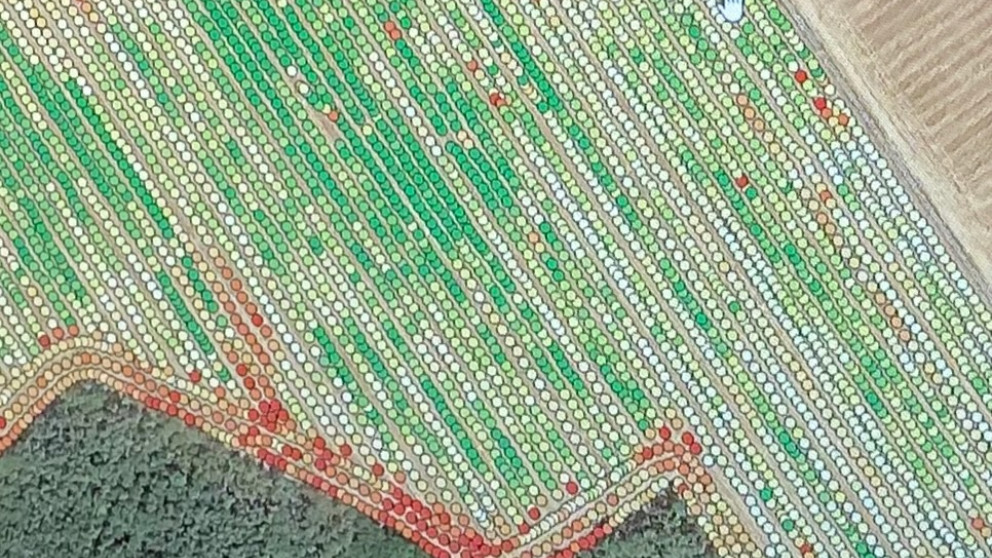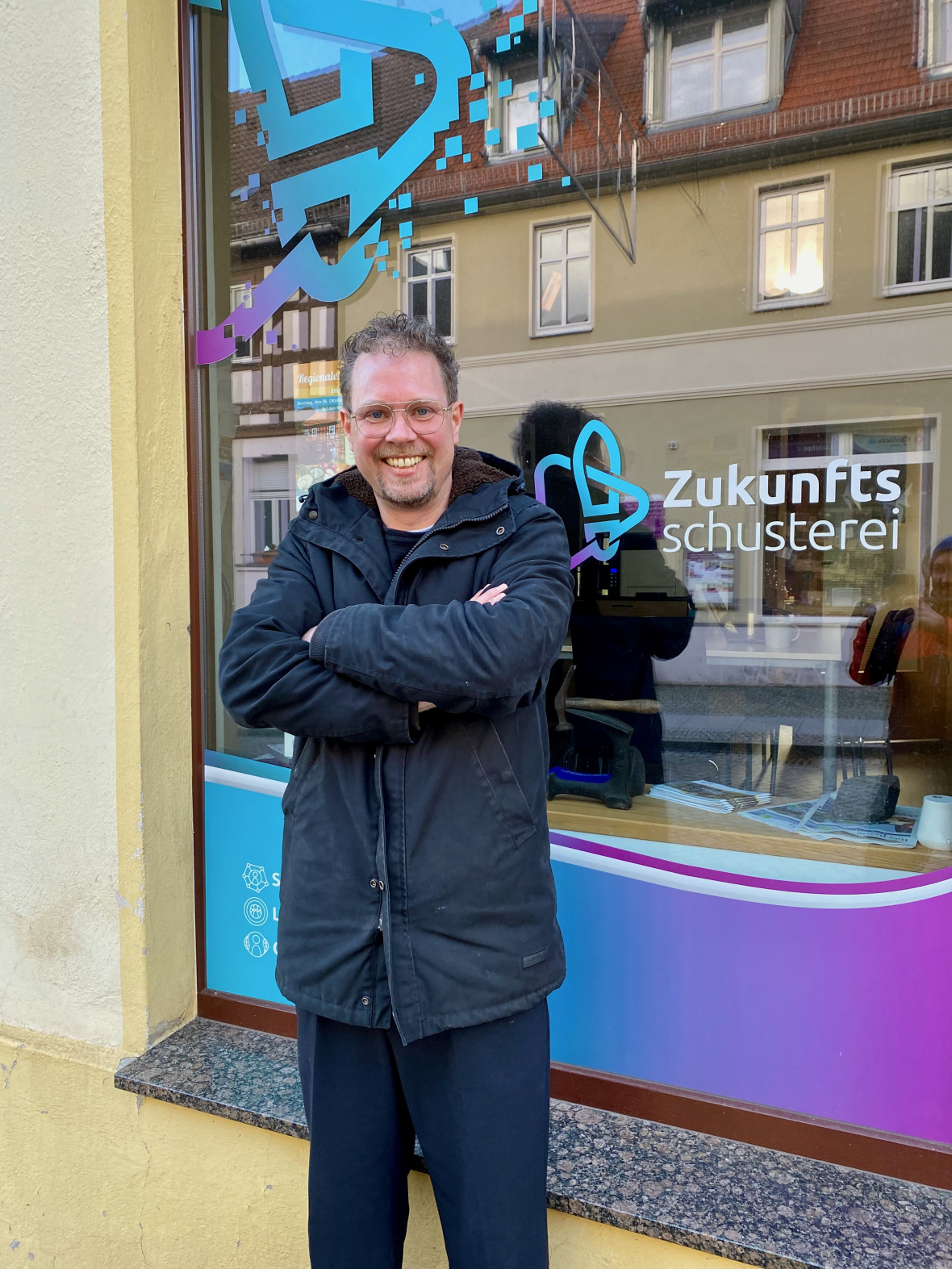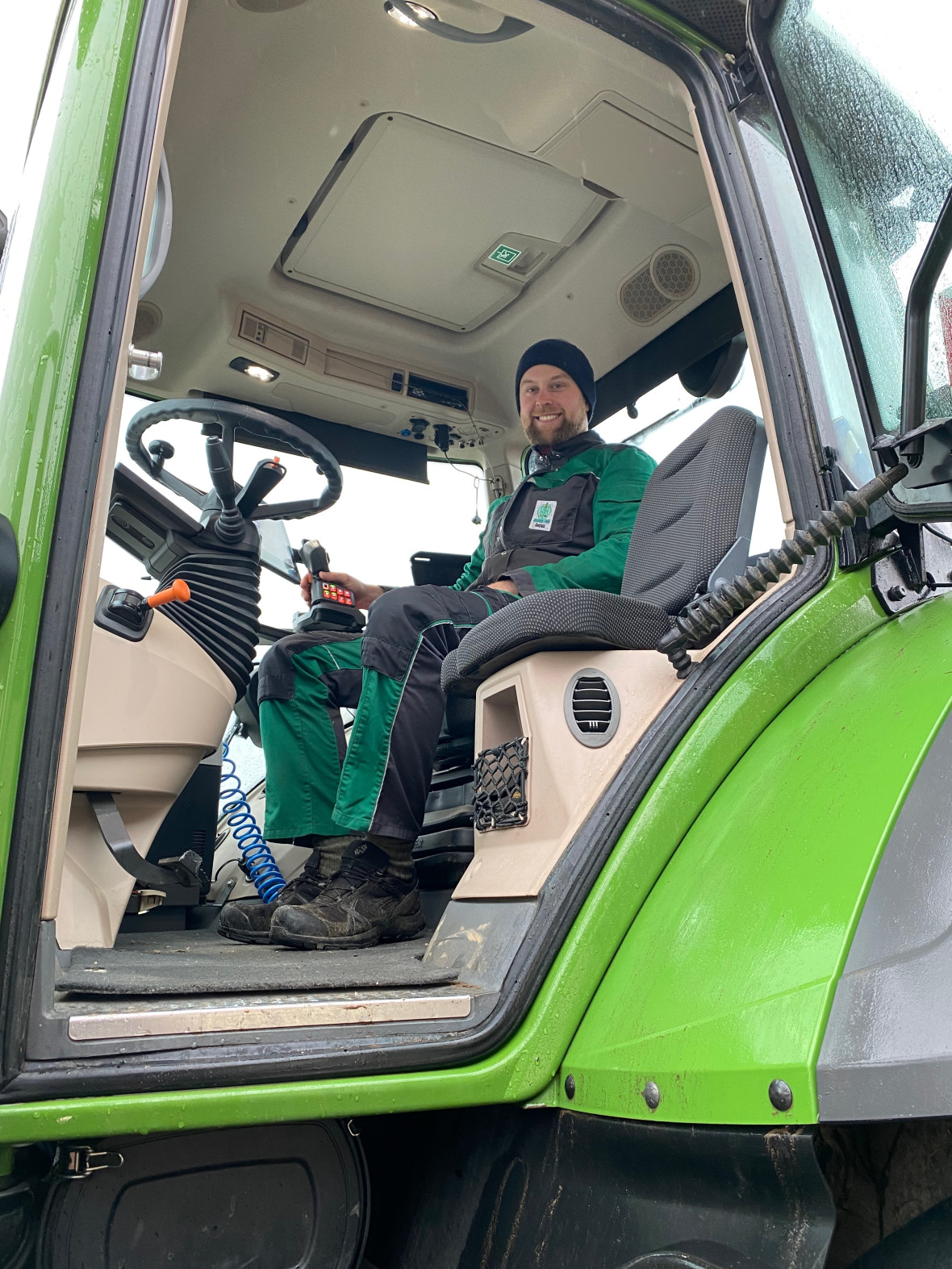Digitalisation and Sustainability: Opportunities and Challenges for Brandenburg
20.02.2025

The digital transformation is rapidly changing our everyday lives and the way we do business and work. Parallel to this, we face the challenge of pursing socio-ecological transformation to secure a sustainable future. How can we bring these two processes together to create synergies? We discovered a number of promising examples in Brandenburg. In the eighth episode of our German-language podcast Negotiating Change. Sustainability in Brandenburg we visit a smart city and take a look at digital agriculture.
Digitalisation as a tool for sustainability
Many socio-ecological transformation projects could benefit from digital technologies. From the heat and energy transitions to air quality monitoring – digital technologies provide new and innovative ways to collect, analyse, and process data. However, it is also important to consider the downsides, such as the high resource demands for the production and operation of digital infrastructures. There is also the risk that not everyone will be included in the digital transformation, leading to a digital divide with negative consequences for society. A key finding of our research on the digital transformation is that digitalisation does not automatically translate into gains in sustainability. Political actors, the business community and civil society must all take an active role in shaping the digital transformation to achieve positive effects and cushion negative impacts.
At the state level, Brandenburg is already looking to take an integrated approach to digitalisation and sustainability. The state’s Sustainability Strategy addresses the digital transformation, particularly with regard to social issues such as justice, social cohesion, and education. Brandenburg’s 2025 Digital Programme explicitly notes the ambivalent impacts of digitalisation and draws on the UN Sustainable Development Goals to identify links. Two examples in the strategy are smart cities/smart regions and smart agriculture. We spoke to the people responsible for Smart City Bad Belzig and Wiesenburg (Mark) and for Agrarbetrieb Rehfeld, which has embraced digital farming practices.
Smart cities: Better quality of life through digital urban planning
The smart cities Bad Belzig and Wiesenburg (Mark) are one exciting example of how digitalisation can be harnessed to facilitate sustainable development in Brandenburg. Launched in 2020, the project uses digital technologies to provide targeted support for processes that benefit both citizens and the environment. In the smart city concept, digitalisation is a tool for achieving social and ecological goals and never an end in itself.
One of the tools used here is the Bad Belzig app, which was developed early on in the project. The app helps to bring digital plans to life and enables citizens to provide feedback on planning proposals, as Konrad Traupe, project manager at the Zukunftsschusterei, the change-maker agency behind Smart City Bad Belzig/ Wiesenburg (Mark): “The app has a polling feature, which people can use to share their views on various topics and to put the conversation between citizens and political actors on an equal footing".
A variety of other digital innovations support sustainability in Brandenburg, including a mobility campus for the development of digital and sustainable mobility services in rural areas and a platform for climate data, which is used to collect and visualize data on water, landscapes, energy, and mobility in the Upper Fläming region. The climate data platform is an example of “data-driven planning", in which data collected via sensors is used to identify and implement planning measures that affect the environment, energy systems and mobility.

Digitalisation in agriculture
Another interesting development is the emergence of smart farming, which uses digital technologies to increase resource efficiency and contribute to environmental and wildlife protection. Agrarbetrieb Rehfeld uses digital guidance systems to assist vehicles during crucial farming operations such as ploughing, sowing, and harvesting. This minimizes overlaps during operations and ensures that vehicles do not violate property boundaries. By improving tillage performance, smart farming can reduce water loss and deliver higher yields. State-of-the-art drones can be used to analyse the quality of fields and determine the best time for harvesting, among other things. Drones equipped with thermal imaging cameras can also be used to check whether young deer are hiding in fields immediately before harvesting. If any are found, they can be carefully removed from the fields and released.
And it's not just the environment that is benefitting from these innovations. According to the farm’s management, vehicle operators have reported that the new technologies make their work easier and enable them to concentrate more on other tasks. Employees were not worried that they would be replaced by these automated solutions, although some were initially cautious to embrace this new approach to farming.
However, these innovations in farming do raise questions: Will smart farming lead to a digital divide in agriculture? What can be done to ensure that smaller farms are not left behind?
Factors for a successful digital transformation
The smart city project in Bad Belzig and Wiesenburg (Mark) shows that creating a digital and sustainable municipality is process of experimentation in which small innovations are tested in the field and scaled up when they meet with success. Passionate change-makers, enthusiastic local authorities and helpful experts all play a crucial role here. The founding of the "Coconat" in Bad Belzig, for example, served as a catalyst that brought new impetus to the region. The Coconut is a digital retreat where people come to concentrate on their work in a quiet, rural setting, with catering and accommodation included. The appointment of a permanent Officer for Digital Affairs in the town’s administration was another important step towards institutionalising change.
The digital transformation at Agrarbetrieb Rehfeld is also largely due to the commitment and willingness to change of management and employees, who have embraced changes step by step. This transformation has also delivered economic gains, as agronomist Michael Lechner reported following the last sowing: “We noticed that there was seed left over. In the end, it was the equivalent of just under 70 hectares of wheat, so just under ten sacks – that’s ten tonnes – and we thought, wow, that's really something! Frankly, we were delighted and amazed."
This positive example of modern agriculture will be of interest to other farms in Brandenburg and the uptake of smart farming should be supported by the state government. Farmer-to-farmer field days and other forums offer important opportunities for farmers to learn from each other and find practical solutions to challenges on the road to digital farming.

Conclusion and outlook
Digitalisation and sustainable development harbour significant opportunities for Brandenburg – be it in urban development, agriculture, or other areas. At the same time, it is important that we are mindful of the risks and take precautions where necessary. Ensuring that digital solutions speak to the needs of communities will be vital in the years ahead. This is the only way to achieve a transformation that is both ecologically and socially sustainable.
Our examples show that Brandenburg has taken its first important steps to connecting the socio-ecological and digital transformations. The next step is to analyse the lessons learned and roll out the most successful approaches. With the right mix of innovation, public participation, and political steering, Brandenburg can build on this initial success in sustainable digital transformation.

